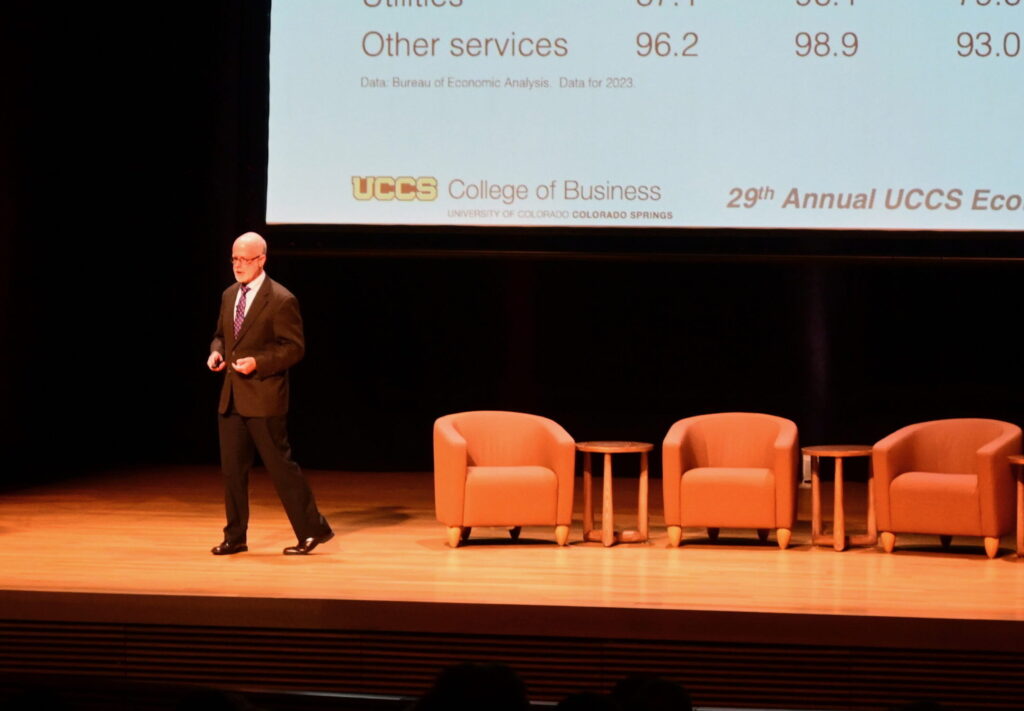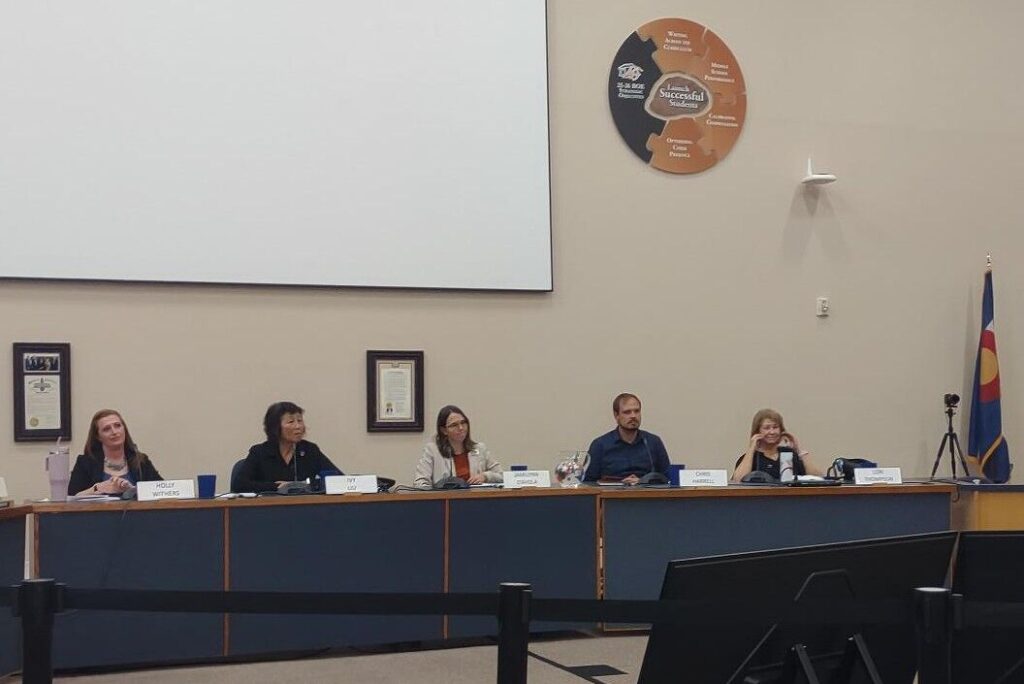Board: Cellphones banned at Boulder high schools starting next year
An almost unanimous Boulder Valley School District Board decision will prohibit students from having cellphones at high schools starting in January.
The policy, which got some backlash at Tuesday’s meeting, states that personal technology devices, or PTDs, can be “useful tools … under certain conditions,” but are also “associated with poorer mental heath outcomes” and are “disruptive to the educational process,” according to the policy documents.
Boulder Valley School District Superintendent Rob Anderson said the policy is about a “culture shift” from an “overreliance on cellphones versus interaction with peers as a troubling trend that is affecting the mental health of the students we serve.”
The devices were already banned at the district’s elementary and middle schools.
Personal technology devices include cellphones, wearables like watches and headphones, cameras, and audio and video recorders. To get ahold of students, parents and guardians can communicate through the school phones and main offices, policy documents state.
Several students and parents spoke at Tuesday night’s board meeting, expressing some support and some concern for the new policy.
Board members approved it, however, with only one vote from the board president against it.
One student, Wyatt Chapman, said he “completely agrees” with the need for the phone policy, but worries that the policy will cause students to leave campus to use their phones — resulting in a decrease of personal connection on campus.
The policy could also cause “antagonistic” relationships between students and teachers, he said.
Parent Ellie Goldberg said that she supported the policy and was happy to see it being considered.
Goldberg’s daughter is going into ninth grade and Goldberg is “glad she’ll enter school with that policy in place,” she said. However, she worries about how well it will be enforced.
Erica Chapman, the mother of two students in high school, said the policy is too punitive.
“I can’t believe I’m standing up here advocating for phone usage,” she said, explaining that she is always telling her kids at home to put their phones away. “We adults helped create this situation with not having policy in place beforehand that was not firmer or stronger.”
Having a cellphone during break periods, like lunch, is an “important part of their own growth and their own need to be able to manage their world,” she said.
It is also difficult to support a policy without a clear understanding of the consequences of not following it, Chapman said.
Board member Beth Niznik said the policy is about culture shift, and she is excited about the work they’re doing. How the policy is enforced will have to be fleshed out as they go, she said.
“This is going to be an iterative process,” she said. “I think we’re going to learn from our students and our staff how this is going to be implemented and this is not going to change overnight.”
Board President Nicole Rajpal cast the only “no” vote on the policy, saying the board started with a solution rather than examining the problem first.
“Rather than starting this conversation with a question about how does access to personal technology and platforms impact educational environment, we started with a solution,” she said. “I’ll be voting no tonight.”
Board member Kitty Sargent said students “managed and things were just fine” before cellphones, adding that parents and employers could still get ahold of students by calling the school office.
The policy goes into place mid-school year, starting January 2025.











